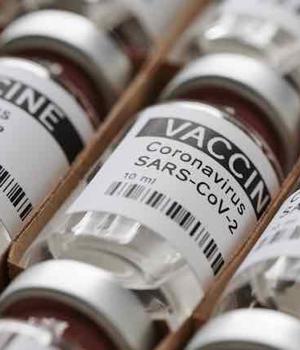Security News > 2021 > March > COVID-19 Vaccine Spear-Phishing Attacks Jump 26 Percent

Between October and January the average number of COVID-19 vaccine-related spear-phishing attacks grew 26 percent, said Barracuda Networks researchers.
The types of cybercriminal activity varies, from sending malicious emails that purport to be from the Centers for Disease Control and Prevention, to posting advertisements on underground forums touting vaccine doses for sale.
"Vaccine-related phishing emails impersonated a well-known brand or organization and included a link to a phishing website advertising early access to vaccines, offering vaccinations in exchange for a payment, or even impersonating health care professionals requesting personal information to check eligibility for a vaccine," said Barracuda Networks researchers.
Kaspersky researchers who found advertisements for the vaccines across 15 underground marketplaces on Thursday warned that there's no indication that these vaccine doses are legitimate.
Phishing attacks and other malicious activity relating to the pandemic in general has been ongoing since COVID-19 took hold across many countries last year - including attacks that take advantages of lifting coronavirus lockdowns as well as financial relief scams.
Staying suspicious of vaccine-related emails: Watch for classic phishing red flags in these emails, such as misspellings in the email body, or sketchy domains.
News URL
https://threatpost.com/covid-19-vaccine-spear-phishing-attacks/164489/
Related news
- iOS devices face twice the phishing attacks of Android (source)
- Windows NTLM hash leak flaw exploited in phishing attacks on governments (source)
- Three Reasons Why the Browser is Best for Stopping Phishing Attacks (source)
- Phishing detection is broken: Why most attacks feel like a zero day (source)
- DPRK Hackers Steal $137M from TRON Users in Single-Day Phishing Attack (source)
- Low-tech phishing attacks are gaining ground (source)
- MintsLoader Drops GhostWeaver via Phishing, ClickFix — Uses DGA, TLS for Stealth Attacks (source)
- Focused Phishing: Attack Targets Victims With Trusted Sites and Live Validation (source)
- CTM360 Identifies Surge in Phishing Attacks Targeting Meta Business Users (source)
- Polymorphic phishing attacks flood inboxes (source)